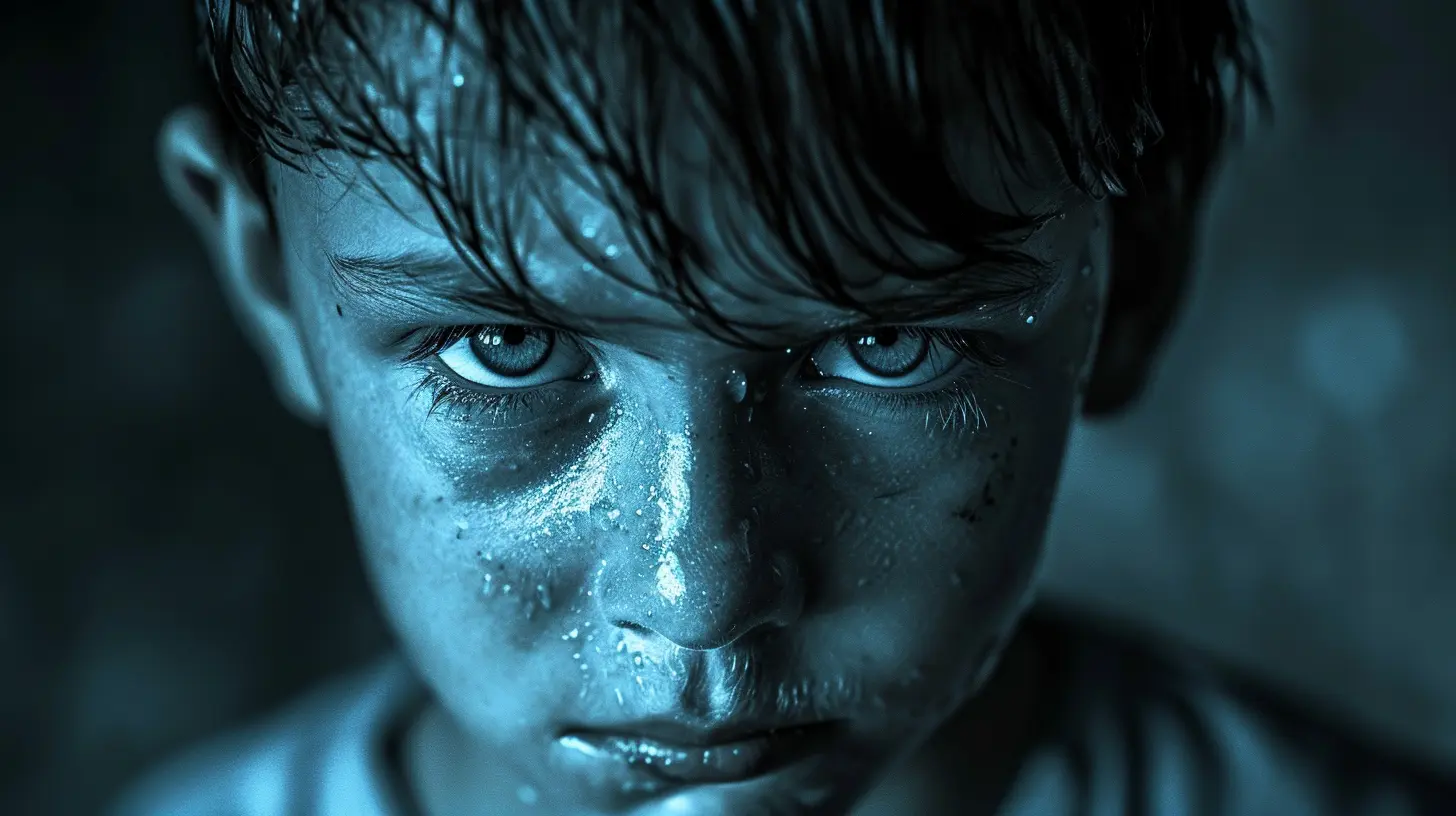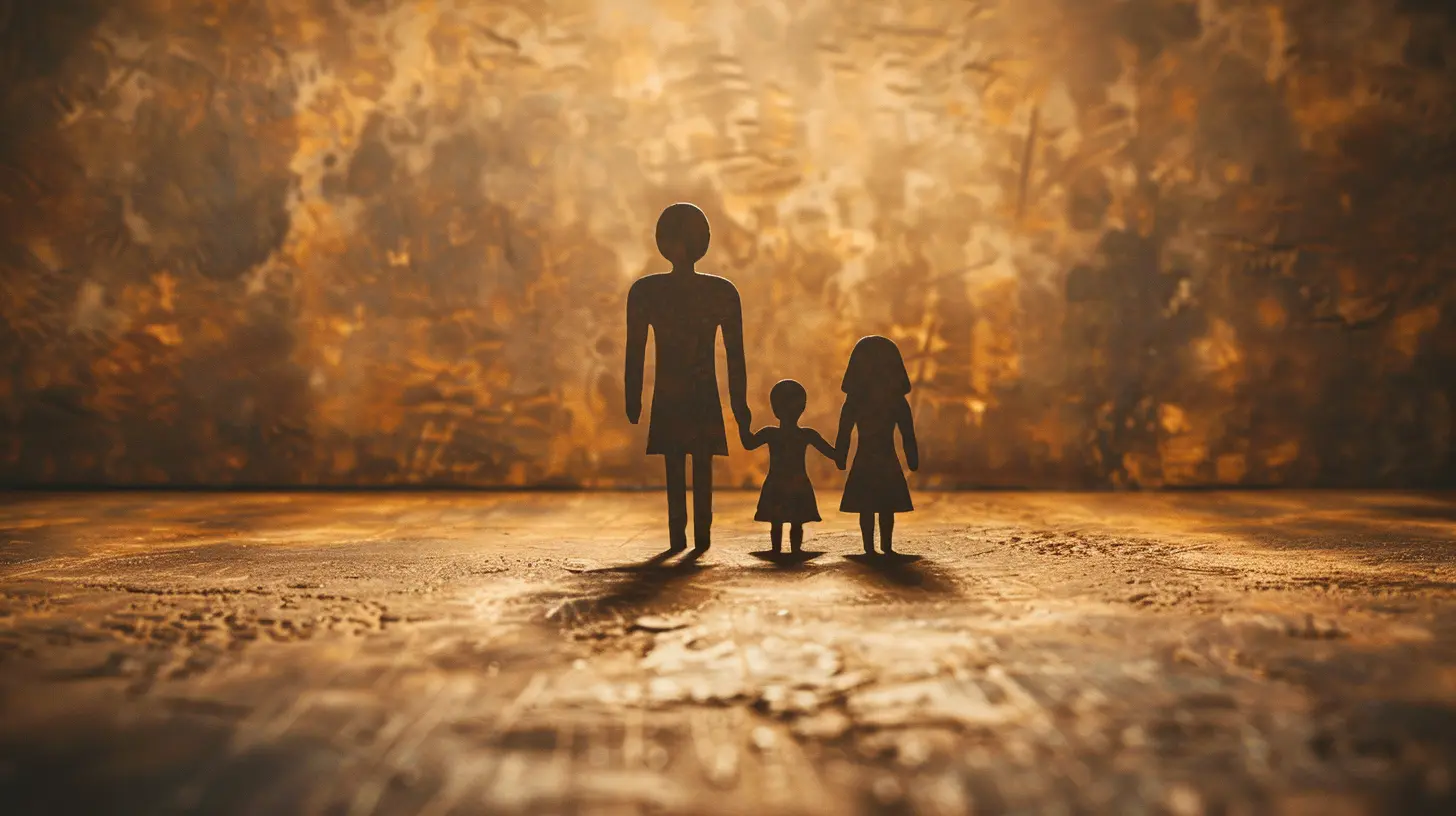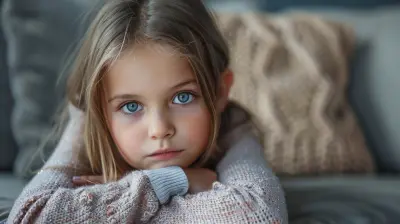The Effects of Parental Conflict on Childhood Mental Health
22 December 2024
As parents, we're all bound to disagree at times. It’s normal. But what happens when those disagreements turn into full-blown conflicts? If you're a parent, you might be wondering, “Is our constant arguing affecting our child?” Well, you’re not alone in pondering that. Today, we’re diving deep into a topic that often gets swept under the rug—the effects of parental conflict on childhood mental health.
Let’s be real—kids are like little sponges. They absorb everything. So, when arguments escalate, even if you think they’re not paying attention, they often are. And it’s not just about yelling or raised voices; it’s about the emotional tension that seeps into a home. That tension, over time, can take a toll on a child’s emotional well-being.
But don't worry, it’s not all doom and gloom. There are ways to minimize the impact, and awareness is the first step. Let’s break it down and explore how parental conflict can affect childhood mental health, and more importantly, what you can do about it.

What Is Parental Conflict?
Before we go any further, let’s define exactly what we mean by "parental conflict." It’s not just the occasional spat over who forgot to take out the trash. Parental conflict refers to intense, ongoing, and unresolved disagreements between parents—whether they are married, divorced, or co-parenting.These conflicts can range from verbal disputes to non-verbal hostility, like cold stares, silent treatment, and passive-aggressive behavior. The key here is to recognize that it’s not the conflict itself that’s harmful but the way it’s handled.
Types of Parental Conflict
Parental conflict doesn’t come in one flavor. Here are a few common types:- Overt Conflict: This is the kind of conflict where there’s yelling, name-calling, or even physical aggression. It’s loud, it’s in-your-face, and, unfortunately, it’s the type many of us immediately think of.
- Covert Conflict: This one’s sneakier. It includes silent treatment, sarcasm, or passive-aggressive comments. It might not be as loud, but it's just as toxic.
- Unresolved Conflict: Some conflicts seem to go on forever. They’re never really resolved, and they continually resurface, creating a never-ending cycle of tension.
It’s important to note that all of these types of conflict can affect a child in different ways, but none of them are harmless.

How Parental Conflict Impacts Childhood Mental Health
So, here’s the big question: how does all this conflict affect your child? The answer, unfortunately, isn’t pretty. Research has consistently shown that children exposed to frequent, unresolved parental conflict are at a higher risk for a range of mental health issues.Anxiety and Stress
When parents argue, children often feel like they’re walking on eggshells. They don’t know when the next fight will erupt, and that uncertainty creates stress. Over time, this constant state of tension can lead to chronic anxiety.Imagine being in a room where you’re constantly hearing the ticking of a bomb but never knowing when (or if) it will go off. That’s what it can feel like for a child. They may start to develop symptoms such as headaches, stomachaches, or even sleep disturbances—all signs of stress and anxiety.
Depression
Another potential consequence is depression. When children are exposed to parental conflict, they may start to feel helpless or hopeless. They might think they’re to blame for the arguments or that they can’t do anything to make the fighting stop. This overwhelming sense of powerlessness can easily spiral into depression, especially if the conflict continues over a long period.Behavioral Issues
Kids don’t always express their emotions in words. Sometimes, they act out instead. Children who are regularly exposed to parental conflict may start showing behavioral problems. They could become more aggressive, defiant, or rebellious. Alternatively, some children retreat inward, becoming withdrawn and isolating themselves from others.It’s like when you shake a soda bottle—eventually, it’s going to explode. The constant emotional pressure of parental conflict can cause a child to "explode" in various ways, whether it’s through acting out or shutting down.
Difficulty Forming Relationships
Children learn how to interact with others by observing their parents. If they grow up in a home where conflict is the norm, they may have a skewed perspective on relationships. They might come to believe that fighting is a normal part of any relationship, making it difficult for them to form healthy relationships of their own in the future.Think of it like trying to build a house with the wrong blueprint. If conflict and poor communication are the models they’ve been given, they’ll struggle to create stable, conflict-free relationships later in life.
Decreased Academic Performance
Studies have shown that children who witness frequent parental conflict often struggle in school. This can be due to a combination of factors, including stress, anxiety, and lack of focus. If your child is preoccupied with what’s going on at home, it’s hard for them to concentrate on their studies. Over time, this can lead to academic underachievement.Low Self-Esteem
Children of parents who are constantly at odds often end up with low self-esteem. They might internalize the conflict, thinking that they’re the reason their parents are fighting. This can make them feel unworthy, unloved, or insecure.Over time, this sense of insecurity can impact how they view themselves and their abilities, making them less likely to take risks or try new things. In short, conflict can stifle their confidence and self-worth.

The Role of Age in How Conflict Affects Children
One thing to keep in mind is that not all children are affected by conflict in the same way. Age plays a significant role. Let’s break it down:- Infants and Toddlers: They might not understand the words being said, but don’t be fooled—babies can pick up on the emotional tone of a room. Parental conflict can make them feel unsafe, leading to increased fussiness, sleep disturbances, or even developmental delays.
- Preschoolers: At this age, children might think they’re responsible for the conflict. They may experience confusion, anxiety, or even start regressing in their behavior (think thumb-sucking or bedwetting).
- School-Aged Children: As they grow older, children may start to externalize their distress through behavioral issues. They might become more aggressive or act out in school as a way to cope with the emotional tension at home.
- Teenagers: Adolescents are especially vulnerable because they’re already navigating a complicated emotional landscape. Parental conflict could exacerbate issues like depression, anxiety, or even lead to risky behaviors, such as substance abuse or skipping school.

How to Mitigate the Negative Effects of Conflict
Now that we’ve covered the not-so-great news, let’s talk about what you can do to reduce the impact of conflict on your child.Keep the Conflict Away from the Kids
First and foremost, try to keep your arguments behind closed doors. Easier said than done, right? But seriously, if kids don’t witness the conflict, they’re less likely to be affected by it. If a disagreement does happen in front of them, make sure to resolve it in front of them too. This shows them that conflicts can be worked through in a healthy manner.Communicate With Your Child
Let your child know that the conflict isn’t their fault. Reassure them that they’re loved and that the arguments have nothing to do with them. Sometimes, a little reassurance can go a long way in easing a child’s anxiety.Seek Professional Help
If the conflicts are escalating and seem unresolvable, it might be time to seek professional help, whether it’s a couples therapist or a family counselor. There’s no shame in admitting that you need help navigating difficult waters. In fact, it’s one of the best things you can do for your family.Model Healthy Conflict Resolution
Children are observant little beings. If they see you handling conflicts in a healthy, respectful manner, they’re more likely to adopt those behaviors themselves. So, try to model good communication skills, like listening, compromising, and managing your emotions.Create a Safe Space for Your Child
Finally, make sure your home is a safe, stable environment for your child. This doesn’t mean you have to be perfect (no one is), but it does mean providing consistency, love, and emotional support.Conclusion
Parental conflict doesn’t just affect the adults involved; it can have a profound impact on a child’s mental health. From anxiety and depression to behavioral problems and academic struggles, the effects can be long-lasting. But here’s the good news: you can mitigate these effects by being mindful of how you handle conflict around your children. With open communication, professional help when needed, and a commitment to modeling healthy behaviors, you can create an environment where your child feels safe and supported—no matter what.all images in this post were generated using AI tools
Category:
Psychological Disorders In ChildAuthor:

Eliana Burton
Discussion
rate this article
13 comments
Jacqueline Brooks
Understanding the impact of parental conflict empowers us to foster healthier environments for our children, nurturing their mental health and resilience for a brighter future.
February 3, 2025 at 3:37 PM

Eliana Burton
Thank you for your insightful comment! Understanding parental conflict is indeed crucial for promoting children's mental well-being and resilience.
Melanie Wilkerson
What an insightful read! Understanding how parental conflict impacts childhood mental health is crucial. It’s heartening to know that fostering a positive environment can lead to healthier, happier children. Keep spreading this important knowledge!
January 28, 2025 at 5:47 PM

Eliana Burton
Thank you for your thoughtful feedback! I'm glad you found the article insightful—it's vital to raise awareness about the impact of parental conflict on children's well-being.
Keira Sharp
Thank you for this insightful article. It’s a crucial reminder of how our home environment shapes children's mental health. Awareness can lead to better support for families in need.
January 22, 2025 at 5:47 PM

Eliana Burton
Thank you for your kind words! I'm glad you found the article insightful and that it highlights the importance of our home environments in shaping children's mental health.
Sylas Shaffer
Parental conflict significantly impacts children's mental health development.
January 19, 2025 at 3:53 PM

Eliana Burton
Thank you for your insightful comment! Indeed, parental conflict plays a crucial role in shaping children's mental health, and understanding this impact is essential for supporting healthier family dynamics.
Dylan Rocha
This article highlights crucial insights into how parental conflict impacts children's mental health. Addressing these dynamics can foster healthier family environments, ultimately promoting stronger emotional resilience in children. Thank you for sharing this important perspective!
January 16, 2025 at 3:38 AM

Eliana Burton
Thank you for your thoughtful comment! I'm glad you found the insights on this important topic valuable.
Velvet Bailey
Parental conflict profoundly shapes a child's emotional landscape, highlighting the need for nurturing conflict resolution.
January 11, 2025 at 5:29 AM

Eliana Burton
Thank you for your insightful comment! Indeed, fostering healthy conflict resolution can significantly benefit children's emotional well-being and resilience.
Jordan McConkey
Insightful article; thank you for sharing this!
January 5, 2025 at 5:52 PM

Eliana Burton
Thank you for your kind words! I'm glad you found it insightful.
Orionis Wright
Understanding parental conflict is crucial; it empowers us to foster healthier environments, nurturing resilient minds for a brighter future!
December 27, 2024 at 3:17 PM

Eliana Burton
Thank you for your insightful comment! Understanding parental conflict indeed plays a vital role in promoting healthier environments for children.
Vex Bell
This article highlights a crucial issue. It's heartbreaking to see how parental conflict can impact children's mental health. Understanding this connection is essential for fostering healthier environments and supporting families in healing and growth. Thank you for sharing this important insight.
December 26, 2024 at 3:29 PM

Eliana Burton
Thank you for your thoughtful comment! I'm glad you found the insights valuable. Addressing parental conflict is indeed vital for promoting children's well-being.
Kassidy Sanchez
This article highlights the significant impact of parental conflict on children's mental health, emphasizing how exposure to discord can lead to anxiety, depression, and behavioral issues. Understanding these effects is crucial for developing effective interventions and promoting healthier family dynamics for the well-being of children.
December 26, 2024 at 4:44 AM

Eliana Burton
Thank you for your insightful comment! Understanding the impact of parental conflict is indeed vital for fostering healthier family environments and supporting children's mental health.
Macey Green
Thank you for this insightful article! It’s crucial to recognize how parental conflict can deeply impact children's mental health. Your discussion sheds light on an often-overlooked issue, highlighting the importance of fostering a nurturing environment. Open communication can truly make a difference in a child's well-being.
December 25, 2024 at 4:37 PM

Eliana Burton
Thank you for your thoughtful comment! I'm glad you found the article insightful and agree on the importance of fostering a nurturing environment for children's well-being.
Meagan McEvoy
This article highlights a crucial topic. It's essential to recognize how parental conflict can profoundly impact children's emotional well-being, shaping their future relationships and mental health. Awareness is key for prevention.
December 23, 2024 at 3:26 PM

Eliana Burton
Thank you for your insightful comment! I completely agree that awareness of parental conflict is vital for safeguarding children’s emotional health and fostering healthier future relationships.
Dax Valentine
Healthy communication fosters resilience; prioritize peace for children!
December 22, 2024 at 5:33 PM

Eliana Burton
Thank you for your thoughtful comment! Indeed, healthy communication is crucial for nurturing resilience in children and promoting their well-being. Prioritizing peace can significantly mitigate the negative effects of parental conflict.
MORE POSTS

Childhood Schizophrenia: Early Symptoms and Diagnosis

How Meditation Alters Brain Structure and Function

The Power of Vulnerability: Healing Emotional Scars

The Science of Happiness: What It Means for Your Emotional Health

Understanding Anxiety Disorders in Children: Signs and Treatments

The Complex Emotions of Losing Someone Suddenly

How to Heal Emotional Wounds Without Suppressing Your Feelings

How to Talk to Children About Death and Grief

Exploring Neuroplasticity: How Your Brain Adapts and Changes